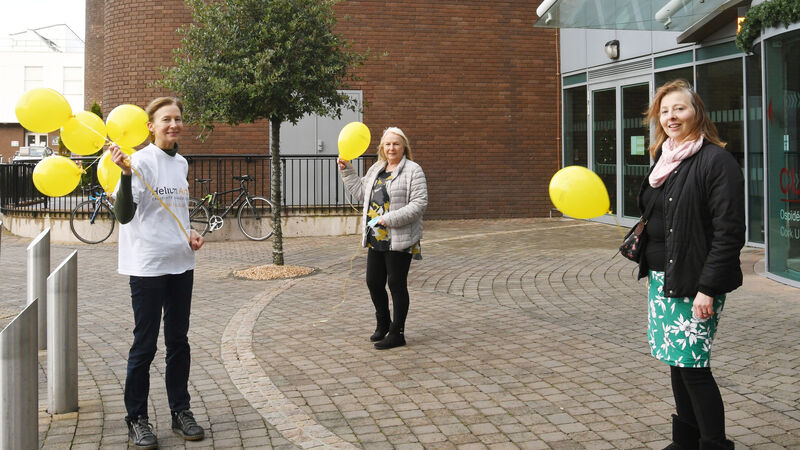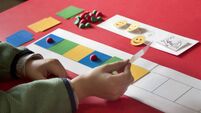Laughter is the best medicine: How playing can help a child's recovery

Helene Hugel of Helium Arts with volunteer Claire Byrne and CUH's Arts and Health programme manager Edelle Nolan getting ready to drop off Helium's latest art packs to children in CUH. Picture: Denis Minihane
FROM art cart deliveries and mural commissions to now virtual visits with musicians, the work of Cork University Hospital’s arts and health programme shows that laughter really is the best medicine.
Edelle Nolan is the manager of the programme and says that the trojan work of volunteers and the department’s Kids Club brings endless joy to the children, who also benefit from the work of the hospital’s arts and music therapy programme.











